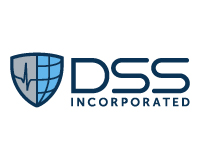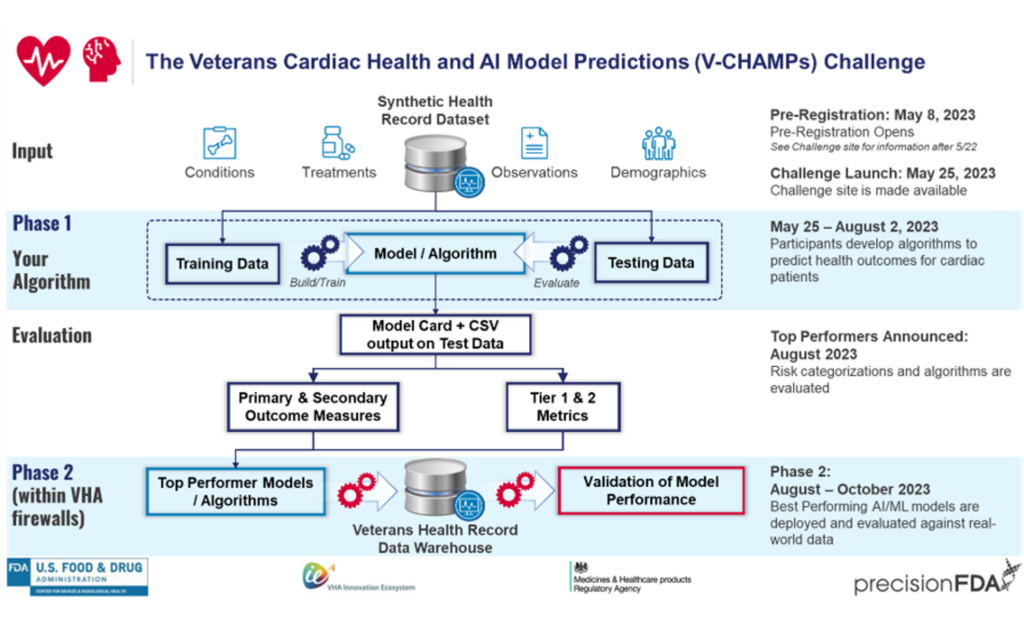 Document Storage Systems, Inc. (DSS) announced it has been named a third-place winner in Phase 2 of the precisionFDA Veterans Cardiac Health and AI Model Predictions (V-CHAMPS) Challenge.
Document Storage Systems, Inc. (DSS) announced it has been named a third-place winner in Phase 2 of the precisionFDA Veterans Cardiac Health and AI Model Predictions (V-CHAMPS) Challenge.
Palm Beach County-based DSS Inc. is a leading provider of health information technology (HIT) solutions for federal, private and public health care organizations. DSS is a catalyst for health care innovation and digital transformation, helping the Department of Veterans Affairs as a solutions provider, systems integrator, and services contractor. DSS is committed to assisting VA in its High Reliability Organization journey and delivering care quality for Veterans by meeting top initiatives, changing regulatory requirements, and implementing enhanced business transformation across VA enterprise.
The V-CHAMPS challenge calls on the scientific and data analytics community to develop and evaluate Artificial Intelligence and Machine Learning (AI/ML) models to predict cardiovascular health related outcomes in Veterans. Cardiovascular diseases, including heart attacks, strokes, high blood pressure and peripheral artery disease, are the leading cause of hospitalization in the VA health care system, and are a major cause of disability among Veterans.
In 2013, the Department of Veterans Affairs published a study that found that post-traumatic stress disorder (PTSD) might be an underlying cause of developing premature cardiovascular disease. Cardiovascular health is an important part of Veteran health, therefore the prevention and reduction of risk for heart disease is a key area of focus for the VA.
For Phase 1, the DSS team led by Xiupeng Wei, PhD, was able to meet key criteria in the challenge using the synthetic Veteran data provided and which included a combination of clinical and data science subject matter experts. They were evaluated on innovation in clinical predictors, completeness of data science approaches, statistical metrics, and the exploration of demographics measures. As a result, the DSS team was selected as a Top Performer for Phase 1.
Phase 1 was focused on synthetic data and ran from May 25 to August 2, 2023. In this Phase of the Challenge, AI/ML models were developed by Challenge participants and trained and tested on the synthetic data sets provided to them, with a view towards predicting outcome variables for Veterans who have been diagnosed with chronic heart failure. Please note that in Phase 1, the data is synthetic Veteran health records.
For Phase 2 of the V-CHAMPS challenge, DSS won third place for creating predictive algorithms using AI/ML, which were tested used actual Veteran data, producing highly accurate results.
Phase 2 focused on validating and further exploring the limits of the AI/ML models. During this Phase, high-performing AI/ML models from Phase 1 were brought into the VA system and validated on real-world Veterans health data within the VHA.
“We are honored to be named a winner in the V-CHAMPS challenge, and are moving towards using these predictive algorithms for cardiac health in our product suite,†said Michele G. Burst, director strategic innovations, analytics at DSS.
“Our vision is to use these AI/ML capabilities to fully understand and predict Veteran health outcomes, which will have tremendous implications on the future of Veteran care.â€
The primary outcome of interest for the V-CHAMPS challenge is a composite of all-cause mortality during a hospitalization and all-cause hospital readmissions. Secondary outcomes of interest are all-cause mortality, cardiovascular mortality during a hospitalization, hospital readmission for all causes (cardiovascular and non-cardiovascular), and hospital readmissions for cardiovascular causes.
 According to the preceisionFDA website, “The V-CHAMPS Challenge showed us that artificial intelligence (AI) models that performed well on the synthetic patient data in Phase 1 also performed well on the RWD during Phase 2, highlighting the potential value of using synthetic data in AI model development. Teams that employed ensemble learning approaches also tended to perform the best. Overall, isolating the clinical features that drove model performance was considered the most critical differentiator in evaluating whether AI models could potentially be valuable aids to clinicians treating patients with cardiovascular conditions such as heart failure. A formal publication is planned to provide more detailed information on the V-CHAMPS Challenge, the challenge process, the lessons learned, and details of the models entered into the challenge.”
According to the preceisionFDA website, “The V-CHAMPS Challenge showed us that artificial intelligence (AI) models that performed well on the synthetic patient data in Phase 1 also performed well on the RWD during Phase 2, highlighting the potential value of using synthetic data in AI model development. Teams that employed ensemble learning approaches also tended to perform the best. Overall, isolating the clinical features that drove model performance was considered the most critical differentiator in evaluating whether AI models could potentially be valuable aids to clinicians treating patients with cardiovascular conditions such as heart failure. A formal publication is planned to provide more detailed information on the V-CHAMPS Challenge, the challenge process, the lessons learned, and details of the models entered into the challenge.”
The V-CHAMPS challenge is managed by the Veterans Health Administration (VHA) Innovation Ecosystem (IE), the Digital Health Center of Excellence (DHCoE) at the U.S. Food and Drug Administration (FDA), the FDA Office of Digital Transformation (ODT)’s precisionFDA, and the UK Medicines and Healthcare products Regulatory Agency (MHRA).
Learn more about the V-CHAMPS Challenge winners and the challenge outcomes here.


